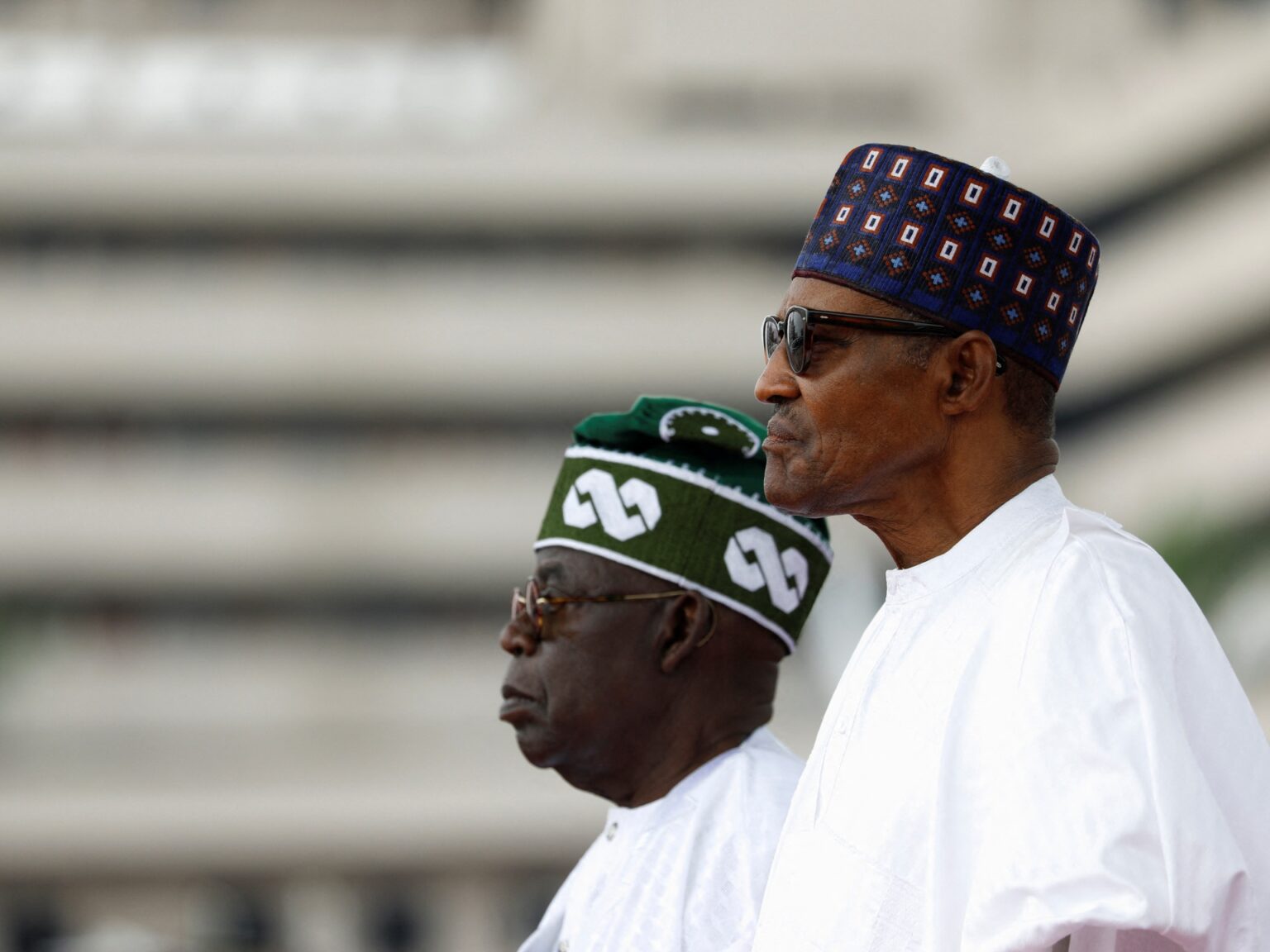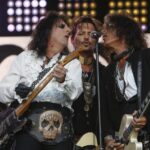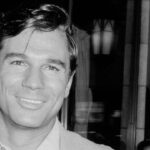Global Courant 2023-05-29 21:25:44
Tinubu inherits a massively indebted economy from his predecessor Buhari, whose protectionist policies scared the hell out of investors.
Nigeria’s new president, Bola Tinubu, at his swearing-in ceremony on Monday, pledged to expand the economy by at least six percent a year, remove barriers to investment, create jobs and unify the exchange rate, all while tackling rampant insecurity .
“In terms of the economy, we are aiming for higher GDP (gross domestic product) growth and a significant reduction in unemployment,” he said.
He took his oath in an open-air ceremony at Eagle Square in the capital Abuja. Then his predecessor Muhammadu Buhari ended his eight-year tenure and left for his rural home in the northwestern state of Katsina.
Buhari terrified investors with protectionist policies, including months of border closures in 2019. Under Buhari, the naira, Nigeria’s currency, also lost 70 percent of its value as Africa’s largest economy struggled to keep pace with growing debt.
More than a third of the country’s population is currently unemployed and voters expect the 71-year-old Tinubu to create jobs, restore the economy’s free-fall and tighten security in line with his campaign promises.
The new president will also face currency and fuel shortages, nearly two decades of high inflation, widespread insecurity, epileptic power generation and declining oil production due to crude theft and underinvestment.
“I have a message for our investors, both local and foreign: Our government will review all their complaints about multiple taxation and various anti-investment curbs,” Tinubu said.
The former governor of Lagos state and member of Buhari’s party said a popular but costly fuel subsidy would be cut in line with this year’s budget, which was to be scrapped from June.
He also promised a “deep cleaning” of monetary policy, adding that the central bank should work towards a unified exchange rate.
“This will divert resources from arbitrage to meaningful investment in the factories, equipment and jobs that power the real economy,” he said.
Economists are already there to predict that Tinubu, who criticized a recent redesign and currency swap, is expected to devalue the naira by as much as 15 percent to help stabilize the economy.
Tinubu also inherits a divided country after his disputed victory that is challenged in court by his main rivals, who see him as a member of the old guard. In the February election, he won with just 37 percent of the vote, slightly ahead of closest contenders Atiku Abubakar and Peter Obi.
But Tinubu said his election victory was deserved.
“My supporters, thank you. To those who voted otherwise, I extend my hand across the political divide. I ask you to understand it in national affinity and brotherhood,” he said.
The elections had sparked young voters hoping for a break with the two parties that have dominated Nigerian politics since the end of military rule in 1999. But what the authorities promised would be the freest and fairest elections yet ended in frustration for many.
Tinubu said he would tackle widespread violence in Nigeria by reforming the security forces with more staff and better training, equipment and pay.
Killings and kidnappings for ransom are rife in the Northwest. Separatists and gang violence plague the Southeast, and clashes between farmers and herders continue in hinterland states known as Nigeria’s Middle Belt.
(TagsToTranslate)Economics








